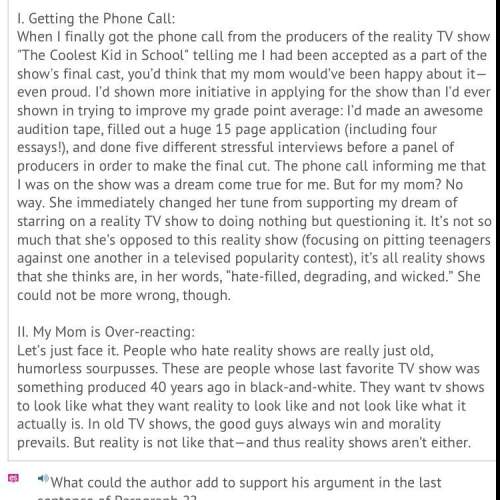
English, 24.02.2021 04:40 victoriacarr638
Part D
In this part of the activity, you will evaluate your three critiques of the poem. You will first need to recall what you learned about intentional and affective fallacies in this unit. W. K. Wimsatt and Monroe Beardsley coined both terms. The term intentional fallacy refers to the idea that an author’s purpose or intention in writing a work of literature has no importance in appreciating or critiquing that work. The term affective fallacy refers to the idea that how a work affects a reader or what emotions it arouses in the reader have no importance in appreciating or critiquing that work. Read this Knowledge Article to learn more about New Criticism and the affective and intentional fallacies.
Evaluate your response to part A. Explain the disadvantages of emphasizing background information, such as historical context when critiquing a poem. Be sure to include examples from your analyses.

Answers: 1


Another question on English


English, 21.06.2019 20:30
How is time represented in “persistence of memory” by salvador dali? what effect does dali achieve? can writers use similar techniques in written works? how would writers achieve this with words?
Answers: 3

English, 21.06.2019 23:00
What difference do you notice between this passage and contemporary pose.
Answers: 1

English, 22.06.2019 00:30
How many syllables does a tanka have? a. 31 b. 17 c. 14 d. 10
Answers: 2
You know the right answer?
Part D
In this part of the activity, you will evaluate your three critiques of the poem. You will f...
Questions



Mathematics, 20.10.2019 18:00

Physics, 20.10.2019 18:00

Mathematics, 20.10.2019 18:00

History, 20.10.2019 18:00

Advanced Placement (AP), 20.10.2019 18:00

Chemistry, 20.10.2019 18:00



Social Studies, 20.10.2019 18:00

Advanced Placement (AP), 20.10.2019 18:00

Mathematics, 20.10.2019 18:00





History, 20.10.2019 18:00






